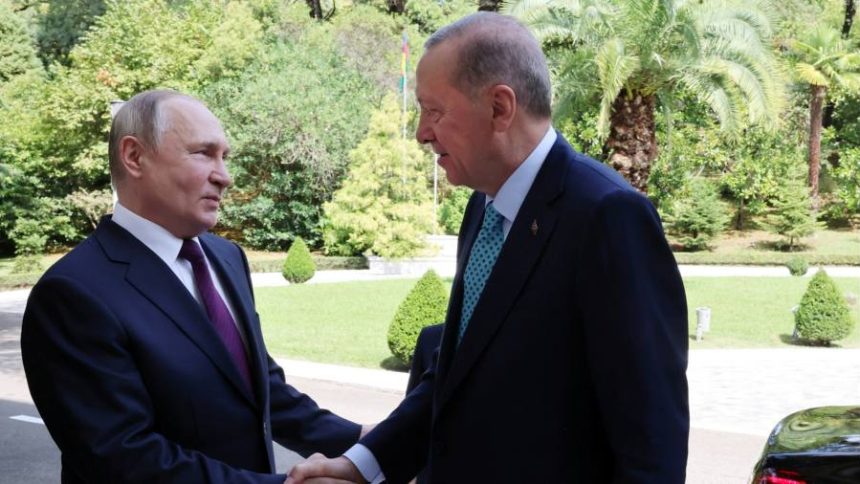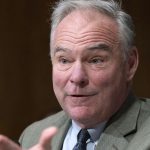Receive free War in Ukraine updates
We’ll send you a myFT Daily Digest email rounding up the latest War in Ukraine news every morning.
Turkish president Recep Tayyip Erdoğan said he was confident Russia would “soon” revive the Black Sea grain deal, even as Vladimir Putin insisted that Moscow would not re-join the initiative until the west met Russian’s demands.
Speaking at a joint press conference in the Russian city of Sochi, Putin said “We are ready to go back to the deal as soon as [Russia’s] obligations are fulfilled,” while insisting the west had “betrayed” its commitments.
Erdoğan said Turkey had been working alongside the UN on ways to revive the accord. “I hope the new work of the UN will yield results. As Turkey, I believe we will reach a solution that will meet expectations soon,” he said.
“All parties are aware of Russia’s expectations for the resumption of the initiative. We have expressed these demands and we continue to do so,” the Turkish leader added. He also called on Ukraine to “soften its approach” if the grain deal was to be saved, without elaborating further.
UN secretary-general António Guterres had last week sent “a set of concrete proposals” to Russia aimed at breaking the deadlock.
Putin and Erdoğan’s meeting comes nearly two months after Moscow pulled out of the agreement that allowed about 33mn tonnes of grain to be exported from Ukraine across the Black Sea.
More than half the grain was delivered to developing nations, including Turkey, according to the deal’s co-ordination committee. Russia’s exit from the agreement sparked new fears of a possible food crisis in parts of Africa, the Middle East and Asia.
Ahead of the meeting with Erdoğan, Moscow had laid out a list of demands for rejoining the accord. Russia has long alleged that the original deal was unfairly implemented, claiming that western sanctions had prevented the enforcement of a parallel deal to allow Moscow’s own agricultural exports.
Western diplomats said Moscow had been particularly aggravated because it was unable to export ammonia, a key fertiliser ingredient, through Ukrainian controlled territory.
Erdoğan has sought to position himself as a middleman between Russia and the west. Ankara has declined to sign up to western sanctions on Russia, and the two countries have deepened their economic ties since the Ukraine war began last year. Turkey, a Nato member, played a key role in negotiating the initial grain agreement, which was negotiated in July 2022.
Without safe access to Black Sea ports, Ukraine’s farmers have been forced to reroute their grain exports via land and its Danube ports. These routes carry significantly higher costs and could lead them to plant fewer crops, exacerbating fears of a food shortage down the line.
Putin on Monday pushed a separate deal, in which Russia would ship 1mn tonnes of its own grain to less developed African countries via a deal with Turkey and Qatar.
Erdoğan said Turkey was prepared to “mill this grain in our flour factories and send it as flour to poor African countries”, but he also insisted that it was no alternative to the Black Sea agreement.
“The alternative proposals that have been suggested have been unable to offer a sustainable, secure and lasting model that is based on co-operation between the sides as the Black Sea initiative,” he said.
In a sign of the extent to which the situation has deteriorated, Russia has launched a series of attacks on Ukraine’s southern Odesa region, some on its Danube ports such as Izmail. Kyiv claimed strikes overnight on Monday had crashed across the river into the territory of Nato-member Romania.
The strikes on Danube ports “further demonstrate how Russia is exacerbating the global food crisis with its actions which are putting at risk millions of vulnerable people around the world”, the European Commission said.
Additional reporting by Alice Hancock in Brussels
Read the full article here




